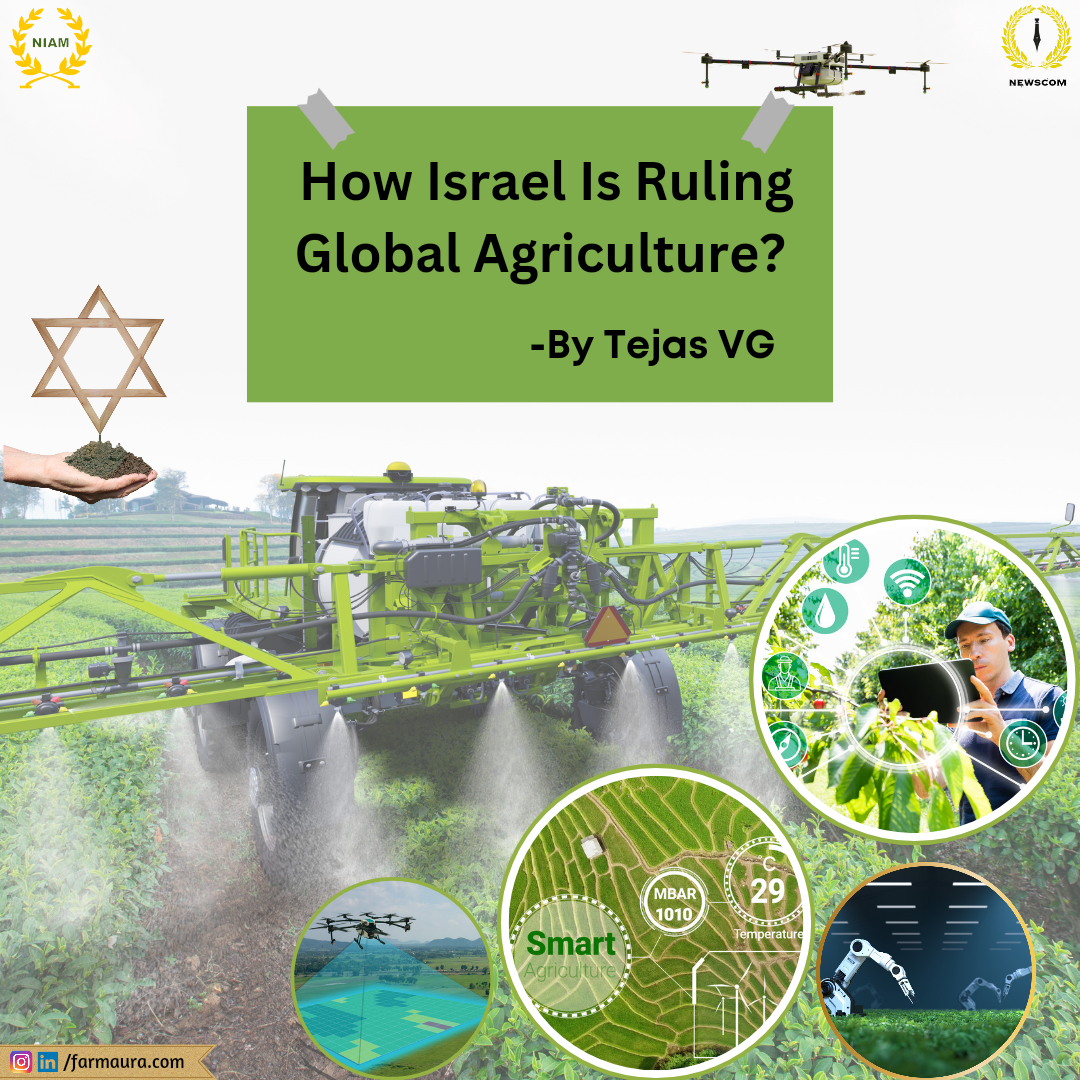Despite having approximately 60% desert, Israel is the world leader in agriculture. It has only about 20% of arable land, but still, it is the pinnacle of agricultural success. The Negev desert is Israel’s largest desert (approx..16000 sq. km), covering more than 50% of the country’s geographical area.
Some efficient technologies used in Israel:
- Drip Irrigation System: After years of experiments, Simcha and his son, Yeshayahu, developed the first experimental system of modern drip irrigation in 1959 and created a company Netafim, the first drip irrigation company, in 1965. This allowed the desert’s precious and scarce water resources to be used at extreme limits to grow crops.
- Water Reuse & Desalination Plants: Israel today heavily relies on desalination facilities, the reuse of treated sewage water for agriculture, computerized early-warning systems, drip irrigation, and micro-sprinklers due to the paucity of natural water supplies and the potential for an even drier climate. Israel leads the world in water reuse (86% in Israel vs. 10% in Australia, for example). Therefore, it might not be shocking to find that Israel has become a water-surplus nation because of these innovations.
- Water Generation: The natural humidity in the air can be extracted and condensed as an alternative to desalination. An Israeli start-up called Watergen exploits the air’s humidity to produce pure, fresh drinking water. The ground-breaking GENius™ heat-exchange technology serves as the foundation of the Watergen product line. Air is taken into the Atmospheric Water Generator (AWG), which thoroughly cleans it to remove all dust and other impurities and only leave pure air in the system. The dewpoint (the temperature at which condensation occurs) is reached by directing the clean air through the heat exchange and cooling process, which produces high-quality water.
- Some major technologies that are most commonly being utilized by Israeli farms include drones, autonomous tractors, planting, and weeding machines, and automatic harvesters. Major concerns like an expanding global population, a lack of farm labour, and shifting consumer demands are addressed through farm automation.
- Israeli agriculture routinely uses sophisticated technologies such as robots, moisture and temperature sensors, aerial photographs, and GPS technology. With the help of these cutting-edge tools, robotic farming systems, and precision agriculture, farmers can operate more profitably, effectively, safely, and sustainably.
- Israel is focusing on mobile technologies for monitoring and managing agricultural irrigation systems. Israeli farmers are using cameras and mobile technology Plant sensors for tracking the microenvironment of the farm.
PRACTICAL SUCCESS:
The contemporary strain of cherry tomatoes that can be found in supermarkets all over the world was developed in the Negev desert, making them one of the most notable crops farmed in the Israeli desert. Due to the quantity of water used and the distinctive characteristics of the water’s minerals, cherry tomatoes cultivated in the Negev are 2-3 times sweeter than those grown elsewhere. To further enhance yields, agriculturalists are now creating additional strains of the tomato (already the Negev grows 3-4 times greater yields of tomatoes compared to elsewhere in the world).
The Ramat Negev Desert Agro Research Centre (RNDARC), a one-of-a-kind agricultural research facility established by the government in the Ramat Negev region, collaborates with local farmers to create crop varieties that are best suited to the climate, water availability, and soil characteristics of the Negev as well as to test novel growth methods.




